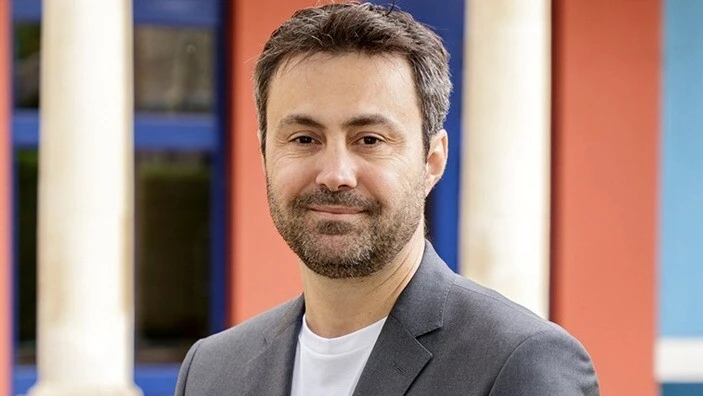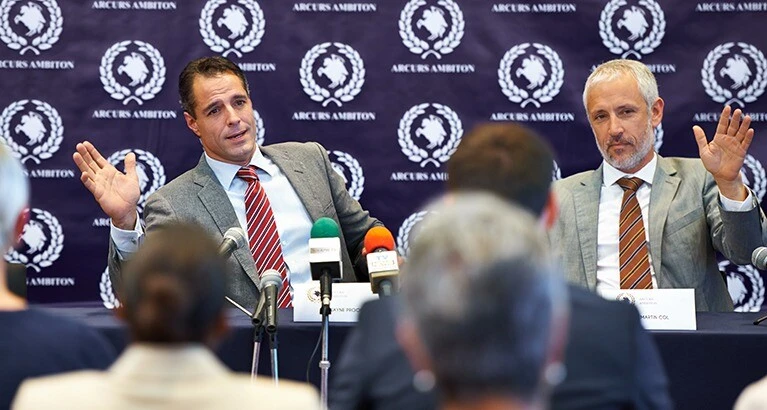CEOs are usually not lacking in self-confidence, and are very skilled at finding external factors to account for rough periods of company performance: tough competition, market turbulence and pricing pressure, to name only a few.
A new study co-authored by Professor of Accounting Rafael Rogo of Cambridge Judge Business School suggests, however, that companies would benefit from higher earnings-per-share (EPS) forecasts from analysts if their CEOs showed humility by expressing more internal reasons for poor performance in presentations to financial analysts.
CEOs are seen as having integrity when they hold themselves accountable
“In terms of practical implications, CEOs should be encouraged to hold themselves accountable when the company performs poorly because analysts are likely to view this as a reflection on their integrity,” the authors conclude, basing their findings on the ‘actor-observer perspective’ on perceived integrity.
“Analysts observe the way CEOs explain their companies’ performance at a more than surface level; causal accounts reveal something real about a CEOs’ integrity, character, and how they manage the company.”
Analysts’ forecasts are better when CEOs says bad performance is due to internal factors

The study based on more than 35,000 quarterly earnings calls for US firms over a 12-year period (2002-2013) found that companies whose CEOs attribute unfavourable firm outcomes to internal factors receive higher EPS forecasts from analysts, based on such EPS forecasts before and after the earnings call.
However, the study found no evidence that firms whose CEOs attribute favourable outcomes to external factors receive higher forecasts from analysts – which the authors said was consistent with evidence showing that observers weigh negative information more heavily, especially in decisions involving risk.
“We speculate that in the present context, analysts tend to have relatively more information about a firm’s external environment than its internal workings, thus external accounts simply carry less novel information and have less impact on their forecasts,” says the study published in the journal Organizational Behavior and Human Decision Processes. “Another possible explanation is that when the company performs favourably, analysts’ concerns about risk are lowered, lessening the attention paid to CEO accounts.”
Why language matters in CEO presentations to analysts
The study looked at the language used by CEOs in earnings calls. Internal references included words like me, I, my, mine, us and our, while external references include keywords such as competition, industry, regulation and market. The study looked at the use of such words compared to the total number of words used to describe causal elements of company results.
The findings based on actual earnings calls were replicated in a field experiment consisting of 307 financial analysts across the US recruited for an online survey.
The study’s findings have long-term implications for firm share price
The authors say that while the study focuses on the periods around particular earnings calls, the findings have more long-term implications for how perceived integrity of CEOs can affect a company’s share price.
“Our conclusion is not that analysts will be biased to be more favourable or unfavourable when CEOs display one account or another, but that analysts on average correctly give higher (lower) forecasts that correspond to a higher (lower) quality CEO, which has implications for the company’s financial value.”
The authors also say that the model outlined in the study is also relevant to different situations beyond CEOs and business – including how political leaders account for economic growth (or lack of growth) in a region, or how sports managers provide accounts for wins and losses.
The authors emphasise that they do not propose that CEOs or other leaders fabricate an internal explanation when external accounts are more accurate. “However, the tendency to blame external factors for unfavourable performance might not fare well with astute external observers not just in terms of analysts, but across a variety of domains of leadership from coaching to politics.”
The study – entitled “The role of CEO accounts and perceived integrity in analysts’ forecasts” – is co-authored by Daniel Skarlicki and Kin Lo of the University of British Columbia, Rafael Rogo of Cambridge Judge Business School, and Bruce J Avolio and CodieAnn DeHaas of the University of Washington.
Featured research
Skarlicki, D., Lo, K., Rogo, R., Avolio, B.J. and DeHaas, C. (2023) “The role of CEO accounts and perceived integrity in analysts’ forecasts.” Organizational Behavior and Human Decision Processes





